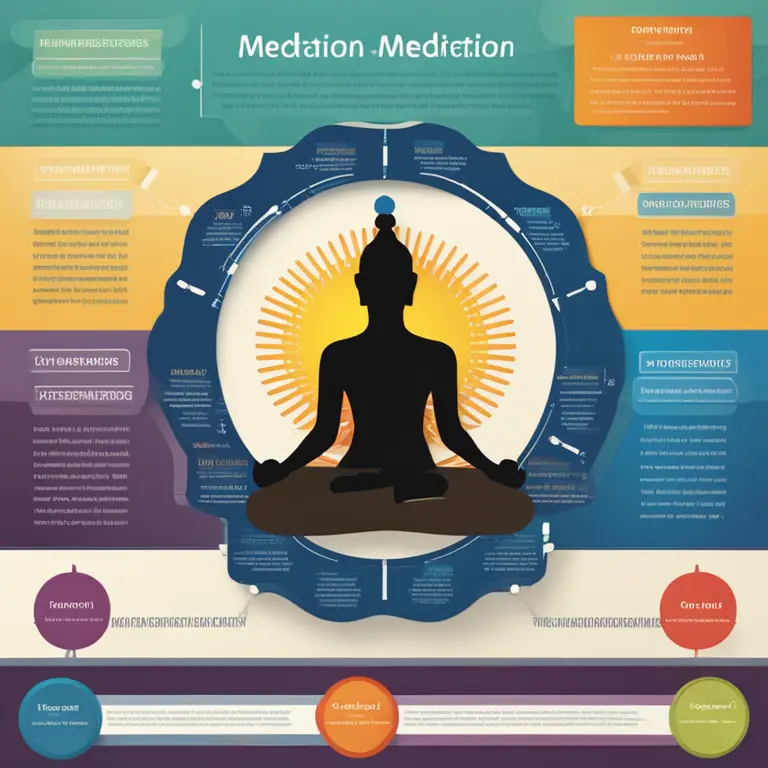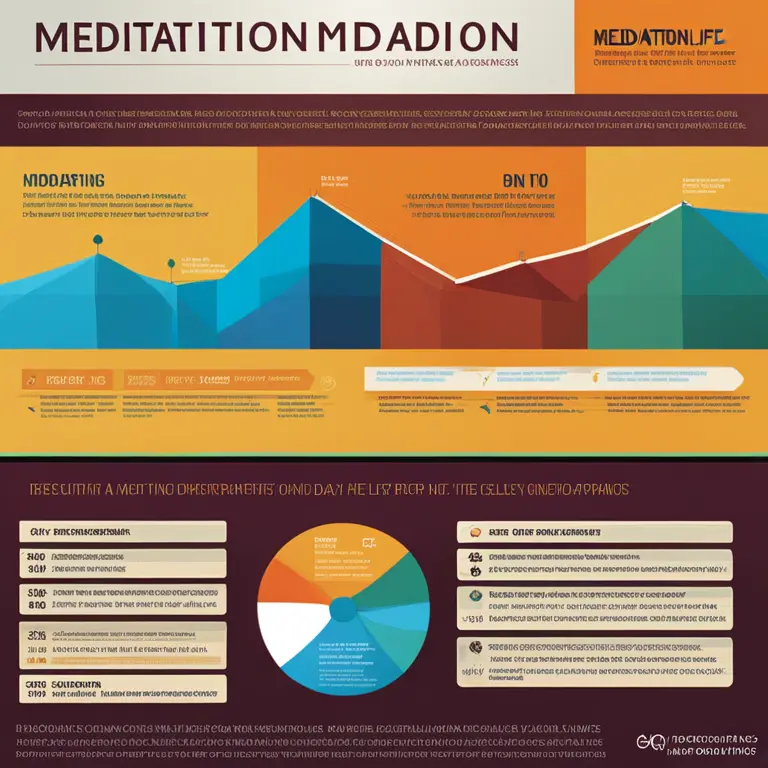
Easing Anxiety Through Meditation: A Calming Approach
Discover how the practice of meditation can be a powerful tool in managing anxiety and fostering a tranquil mindset in this insightful article.
article by Hina Kurosawa
Introduction to Meditation and Anxiety
Meditation has been practiced for centuries as a technique for achieving tranquility and insight. In recent times, with the upsurge of studies focusing on mental health, meditation has emerged as an effective method for anxiety management. Anxiety, a prevalent issue affecting millions worldwide, can significantly impact an individual's quality of life. This article delves into the intricacies of meditation as a remedy for anxiety and how incorporating it into daily life can foster inner peace and well-being.

The Science Behind Meditation's Benefits
Scientific investigations into meditation have shed light on its benefits for the mind and body. Research indicates that meditation can decrease cortisol levels, the stress hormone, and enhance serotonin production, which is associated with mood stabilization. Neuroimaging studies have demonstrated that consistent meditation can lead to alterations in brain regions linked to anxiety, such as the prefrontal cortex and amygdala, providing tangible evidence of meditation's ability to improve anxiety symptoms over time.

Meditation Techniques for Anxiety Relief
Various meditation practices, such as mindfulness meditation, focused attention, and loving-kindness meditation, have been identified as particularly beneficial for anxiety relief. Mindfulness encourages practitioners to observe their present sensations and thoughts without judgment, which can help decrease the racing thoughts characteristic of anxiety. By regularly engaging in these techniques, individuals can develop enhanced emotional regulation and a more profound sense of calm.

Incorporating Meditation into Daily Life
Integrating meditation into daily routines can be a game changer for managing anxiety. Beginners are encouraged to start with short, guided sessions and gradually increase their meditation duration. Consistency is key, and even a few minutes of meditation each day can lead to significant improvements in anxiety levels and overall mental health. Technology, such as meditation apps and online communities, can support and guide newcomers through their journey, making meditation accessible and straightforward.

Meditation as a Complementary Practice
While meditation can be highly effective for anxiety management, it should be considered as part of a comprehensive approach to mental health. It can complement traditional therapies, such as cognitive-behavioral therapy, and in some cases, medication. Health professionals are increasingly recognizing meditation as an adjuvant to other treatment modalities, allowing individuals to have a multifaceted approach to tackle their anxiety.
Overcoming Obstacles in Meditation Practice
It's not uncommon for individuals to encounter challenges when starting a meditation practice, such as restlessness or skepticism regarding its efficacy. Patience and persistence are crucial, as the benefits of meditation often become more apparent with time and practice. Overcoming these hurdles can lead to significant personal growth and a sustainable reduction in anxiety symptoms.
Published: 1/14/2024
Modified: 1/15/2024
More predictions
Come back here soon to learn more about yourself and your future


Mindfulness & Meditation: A Guide for High Schoolers
Discover the benefits of mindfulness meditation tailored for the hectic life of high school students, and learn simple strategies to incorporate it into the daily routine.


Mindfulness Meditation: A Handbook for High Schoolers
Discover how mindfulness meditation can benefit high school students, enhancing focus, reducing stress, and promoting overall well-being.


Easing Loneliness with Meditation
Discover how mindfulness meditation can provide solace and connection to mitigate feelings of loneliness, enhancing emotional and mental well-being.